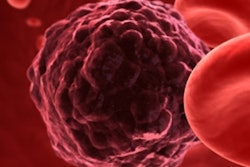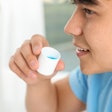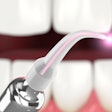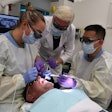Cellular signals found between pancreatic cancer tumors and saliva support the validity of salivary diagnostics, according to a new study in Journal of Biological Chemistry (September 13, 2013, Vol. 288:7, pp. 26888-26897).
Pancreatic cancer is one of the deadliest forms of cancer; most patients with the disease will die within the first year of diagnosis, and only 6% survive for five years.
The disease is typically diagnosed through an invasive and complicated biopsy. But a discovery by researchers at the University of California, Los Angeles (UCLA) School of Dentistry may help create a noninvasive tool that would enable clinicians and oncologists to detect pancreatic cancer through a simple risk assessment test using saliva, according to the university.
The discovery supports researchers' theories that tumor-derived exosomes provide a mechanism in the development of disease-specific biomarkers in saliva.
In a study on a tumor-ridden mouse model, the UCLA researchers were able to definitively validate that pancreatic cancer biomarkers reside in saliva. The team was led by David Wong, DMD, DMSc, associate dean of research.
To date, salivary biomarker panels have been successfully developed for cancers of the breast, ovaries, lungs, and pancreas. However, researchers in the field of salivary diagnostics are still trying to understand how biomarkers produced by other parts of the body ultimately appear in the mouth.
Scientists have surmised that RNA molecules -- which translate genetic code from DNA to make protein -- are secreted into extracellular spaces and act as an information signal system, representing an innovative model in intercellular signaling.
Dr. Wong's research team demonstrated that tumor-derived extracellular RNA molecules are transported through organelles called exosome vesicles that originate at the source of the tumor and are reprocessed into saliva as biomarkers. To prove it, the researchers examined mice models with pancreatic cancer whose saliva showed evidence of biomarkers for pancreatic cancer. When they inhibited the production of exosomes at the source of the tumor, the researchers found that the pancreatic cancer biomarkers no longer appeared in the mouse's saliva.
The team's findings come on the heels of a $5 million award that Dr. Wong recently received from the U.S. National Institutes of Health's Common Fund, supporting the idea that saliva is proving to be scientifically credible for detecting systemic disease and is advancing toward clinical maturation.



















